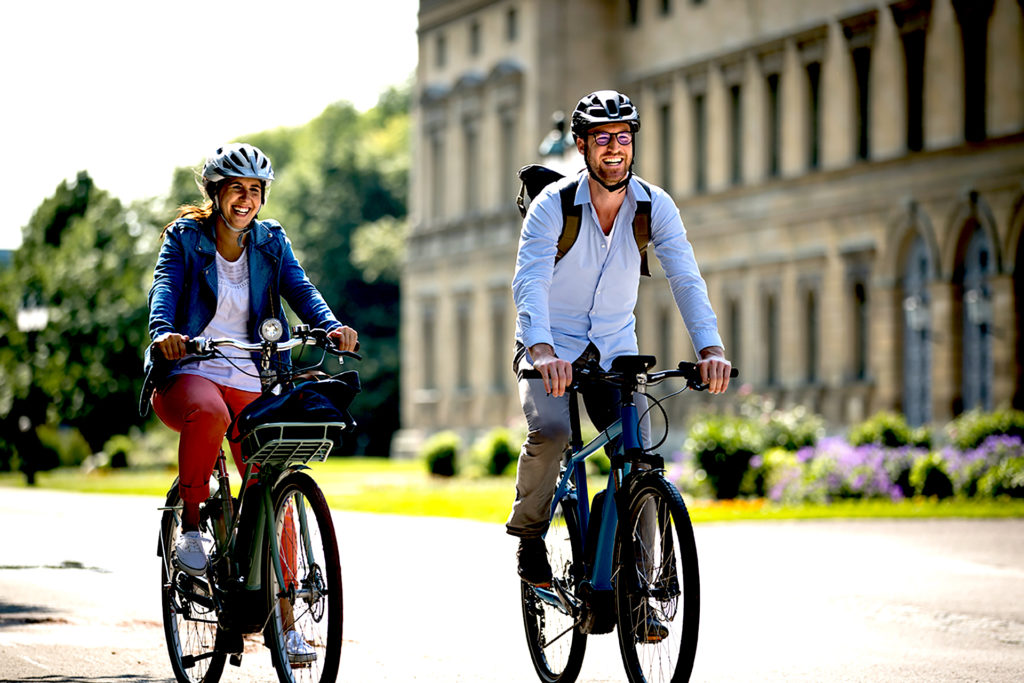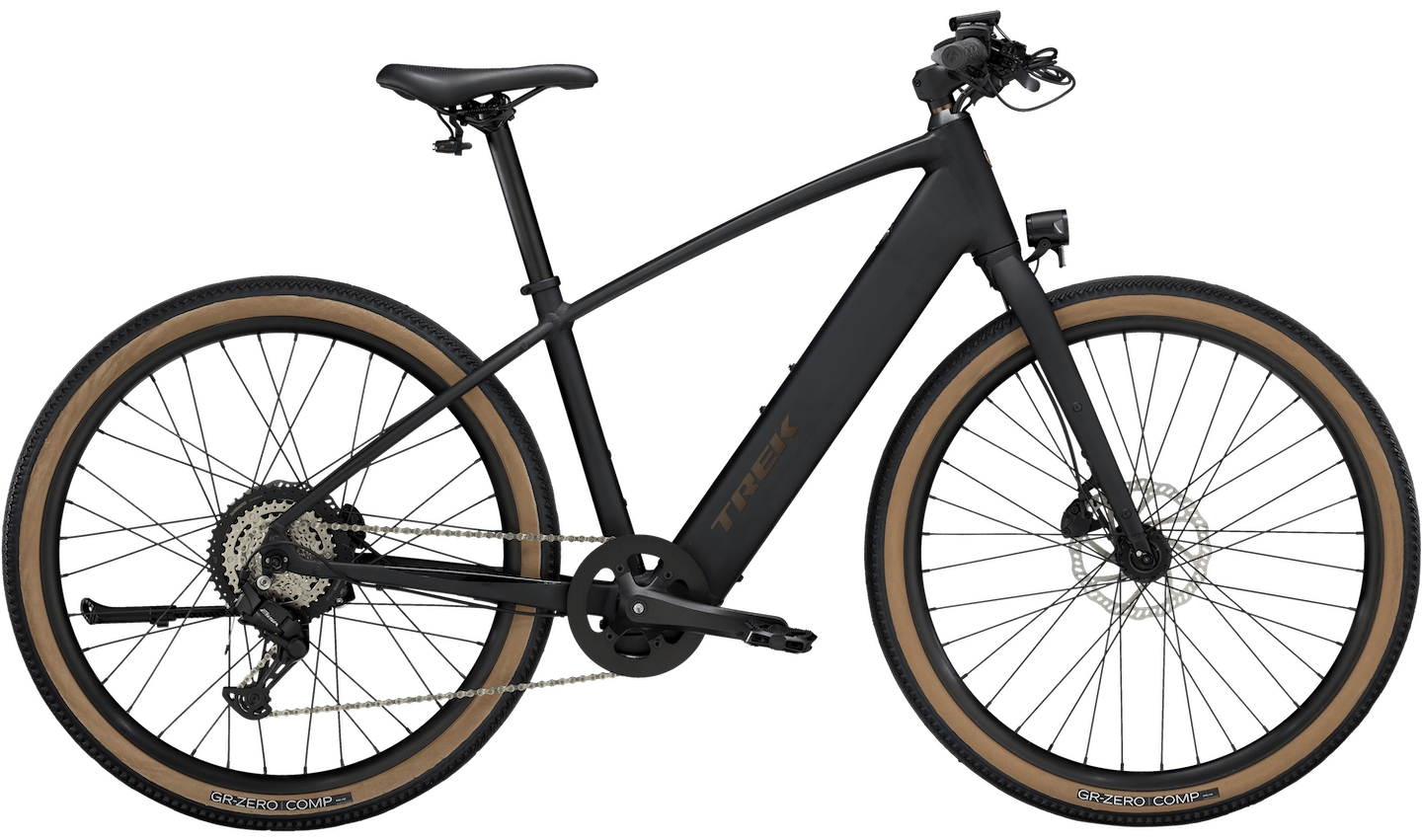March 16, 2023 - (Berlin, GER) The German Bicycle Industry Association (ZIV) and the VDZ Verband des Deutschen Fahrradhandels have presented the market figures for 2022. The German bicycle industry has mastered another record year in 2022. “The bicycle and e-bike market shows a stable high for the past year despite the general reluctance of consumers to buy in the second half of the year,” says Burkhard Stork, CEO of ZIV. “It is particularly pleasing that quality and innovation ‘Made in Germany’ have become a stable strong driver in the growing e-bike market over the last few years.”

With 2.6 million bicycles and e-bikes produced, production was at an all-time high. With bicycle production unchanged (900,000 units), e-bike production increased by 20% to 1.72 million vehicles. In the two-wheeler parts and components sector, production value increased by 55% to 1.6 billion euros since 2020. Thanks to high-quality products and the high proportion of e-bikes, the industry’s sales of bicycles and e-bikes have almost quadrupled in the last 10 years: from around 2 billion euros in 2012 to 7.36 billion euros in 2022. “The bicycle industry is often underestimated in terms of its performance,” says Burkhard Stork. “Yet it makes a significant contribution to value creation in Germany and Europe and stands for sustainable products and jobs.”
Sales to consumers were also characterized by growth overall in 2022. The total number of bikes sold in 2022 was 4.6 million. This is a slight decrease of 100,000 units compared to 2021 and an increase of 300,000 units in relation to the pre-Corona year 2019. The development in e-bike sales is consistently positive, reaching a new peak value in 2022: 2.2 million units (+ 10% compared to 2021).
Thus, e-bikes are clearly in the fast lane in Germany with a market share of 48%. “We expect e-bikes to overtake non-motorized bicycles in terms of unit sales for the first time in the course of this year,” says Stork. “In some product groups, such as mountain bikes or cargo bikes, we now have a very clear dominance of assisted vehicles in Germany.” Nearly one million mountain bikes (931,600 units) were sold in 2022, 836,000 of which were e-mountain bikes (share around 90%).
Looking at the German bicycle and e-bike market, the ZIV sees tremendous potential. “Bicycles and e- bikes have developed into a high-quality mobility and leisure product and this quality is appreciated by consumers, as demand shows,” says Stork. According to ZIV surveys, the average sales price was 500 euros for a bicycle and 2,800 euros for an e-bike including VAT in 2022 – across all sales channels and model groups, i.e. including significantly more expensive groups including cargo bikes.
“If you look at the price trends, it’s not simply that e-bikes would become more and more expensive. Quite the opposite, you get much more bike for the money today,” emphasizes Burkhard Stork. At the same time, demands have also changed. Customers today want higher-quality components, for example in the gears, brakes, tires or lighting. Also on the wish list are a strong battery, suspension, app connectivity, a good design and a long service life.
With the new appreciation for bicycles and e-bikes, the bicycle industry itself has also evolved tremendously. Innovations in products and components, engineering and design are key drivers for a market that continues to grow.
On the market
Supply chain problems due to the Corona pandemic are a thing of the past. Stocks are very well filled at manufacturers and distributors. The time of high pre-production costs (including raw materials, parts, transportation costs), also due to the pandemic, is over and the price advantages are being passed on to customers. “Now is exactly the right moment to buy a new bicycle or e-bike,” emphasizes Burkhard Stork.
On the political situation and mobility turnaround:
The bicycle industry is providing the mass transport of the future. The transport policy of the current federal government, especially in recent weeks, does not indicate a clear direction. Federal Transport Minister Volker Wissing has secured the financial resources for cycling infrastructure of 2.9 billion euros envisaged in the coalition agreement and is promoting bicycle parking at public transport stops with large sums of money. At the same time, the federal government is not setting the right course for the urgently needed mobility turnaround, either in terms of investments or fuels. Burkhard Stork: “Two-thirds of all everyday journeys made by people in cities and rural areas can easily be made by bicycle or e-bike. The bicycle industry is providing the mass transportation of the future. We expect a policy at federal, state and local level that is clearly geared toward the bicycle. Everyone would benefit from this, whether they already use bicycles or not.”
Enormous potential in recreation and tourism
Not all MTBs sold are actually used outside of city streets. But the potential for recreational and vacation use is huge. After the winter of 2022/23, which was very difficult for ski tourism, the tourism industry is looking for year-round alternatives and is finding them primarily in mountain bike tourism. In order to be able to develop this sustainably, above all, a clear and nationwide regulation of access to nature is necessary. “There must not be a patchwork quilt with 16 different state regulations. We expect that the amendment of the Federal Forest Act will lead to uniform nationwide regulations on free access to the forest,” says Stork.
Conclusion on the market from Burkhard Stork, CEO of ZIV:
“Companies in the German bicycle industry have solved the supply chain problems well. The war in Ukraine with its knock-on effects was not foreseeable, but according to the majority opinion of our members, we will also solve this challenge well. We continue to see great interest in bicycles and e- bikes and expect stable growth and a surge in innovation in the coming years. If, in addition, politicians do their homework and people are able to cycle safely and comfortably in everyday life and leisure, there will be nothing standing in the way of Germany as a bicycle country, either in use or in production!”
All data and graphics of the press conference for download here.
About the German Bicycle Industry Association (ZIV)
The German Bicycle Industry Association (ZIV) is the national lobby for the German and international bicycle industry. 90 percent of the bicycles and e-bikes produced in Germany in 2021 come from ZIV member companies. These include manufacturers and importers of bicycles, e-bikes, bicycle components and accessories. As an industry association, the ZIV represents the interests of currently 116 member companies to legislators in the EU and Germany, the government, authorities, media, institutions and organizations.
















